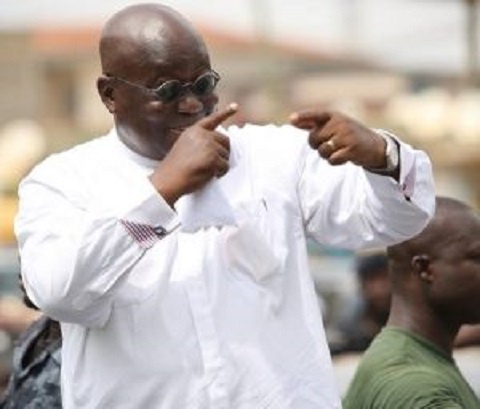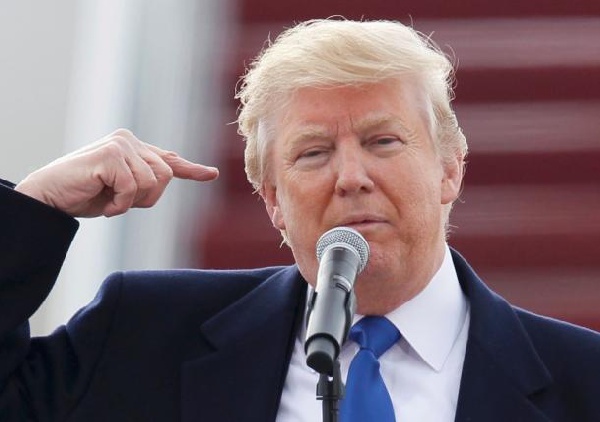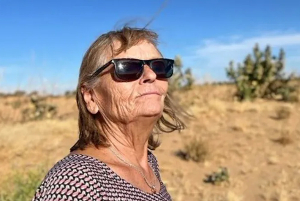Motivated by their ambitions, Republican’s President Donald Trump and New Patriotic Party (NPP)’s President Nana Addo Dankwa Akufo-Addo both share some common denominators in their leadership styles and reaction to opposition.
Apart from the basic political commonality that they both share such as, they were elected in 2016, share the same ideological position, and their political parties have been in opposition for eight years, there are other factors that run deep into their thinking and actions.
The two countries are not the same in the areas of economy, politics and development. The verdict is common knowledge and could be gleaned from the dichotomy of first world and third world. Ghana is not equal to the task the United States can do. Also geographically, by standard flight the distance between Ghana and the United States is about 6,155 miles or 9,905 kilometers which is equivalent to 10.98 hours.
Strikingly, in the area of leadership style, the two countries have Presidents who are said to have a lot in common. Both are unfazed in the presence of glaring opposition to some decisions and choice of cabinet members.
President Trump's Education Secretary pick, Betsy DeVos was opposed by some Democrat and Republican Senators, yet he declined the invitation to withdraw his nomination. He has vowed to get his appointees approved by the Republican-dominated Senate.
President Akufo-Addo faced same challenge in Ghana and his actions have not been different from what President Trump did.
Some of his ministerial nominees had their nominations resisted by the National Democratic Congress (NDC)-led minority in Parliament, yet he didn't withdrawn their nominations as some people advocated.

The approval of the nominees was either through a show of the might of NPP-dominated Parliament in the case of the Gender Minister Otiko Afisa Djaba or the apology of the nominees for their past sins as witnessed in the approval of Energy Minister Boakye Agyarko who had to retract some comments he made against former President John Mahama before he was approved by consensus. He was later accused of attempting to bribe the legislators to secure his approval.
Madam Djaba also had her nomination challenged by the NDC MPs on Parliament’s Appointments Committee for describing former President Mahama as a man with the devil’s heart and a wicked person. She also failed to sign up for the National Service Scheme (NSS), a requirement for graduates in the country. But just when the NDC-led-minority raised objections about her approval, the NPP went for a waiver from the acting Executive Director of the scheme for her.
The two leaders have also made some radical yet "unpopular" promises to the surprise of their own party members covering all the facet of their societies. Promises their followers have wondered if they are achievable.
Mr Trump wants to “build a great, great wall” on the US southern border with Mexico, temporary ban Muslims from entering the country, “bring manufacturing (jobs) back,” impose tariffs on goods made in China and Mexico, “full repeal of Obamacare,” and renegotiate the Iran nuclear deal.
Akufo-Addo has promised to build a factory in every district in the country known as one-factory, one district, give $1 million to every constituency for development, charge flat rate of 3.5 percent VAT, abolish the Special Import Levy, abolish the 17.5 percent VAT on imported medicines not produced in Ghana, and introduce free senior high school (SHS).
And whilst they are barely two months in office, they have demonstrated by their actions the resolve to push through with their pledges damning the consequences. President Trump has been faced with mass protest and court “interference” for temporary banning entry from seven Muslim majority countries – Iran, Syria, Yemen, Iraq, Somalia, Libya and Sudan – for 90 days following the signing of the Executive order on January 27.

Five days after the restriction was enforced, an estimated over 20,000 visas were revoked across the world yet the President remains unmoved. However, it is important to point out that Donald Trump’s behaviour is similar to what former President Barack Obama did after he took the oath of office in 2009. With the stroke of a pen, Obama tackled major issues in the US such as healthcare and economy. In spite of opposition from pro-Democrat groups, Trump is unperturbed promising to deliver to the satisfaction of his constituents.
President Akufo-Addo also had to secure a waiver for Madam Djaba which might weaken the function of the Scheme. If not handled with care, the bad example could trigger mass refusal by some graduates to sign up for the scheme upon completion of school.
It doesn’t make for a sound argument when NPP functionaries cite similar action undertaken by former President Mahama to justify their wrong. The former leader also went for a waiver to secure the approval of Oti Bless as Local Government Minister in 2016.
What the NPP must understand is that President Akufo-Addo won the December 7, 2016 presidential poll on the back of promise to do the right thing made to Ghanaians. Therefore, the current justification posture of government is needless and might affects NPP's political fortunes in the coming years.
Whether the actions taken by the two leaders, days after they took the oath to respect and uphold the constitution of their respective countries are meaningful has not been the focus of this piece.
However, I believe that Presidents Akufo-Addo and Trump have demonstrated enough that they are willing to bend the rules in their societies to accommodate their dreams. It is early to decipher the relevance of their actions. This will be effectively done when their mandate of four-years comes to an end in 2020
Opinions of Thursday, 9 February 2017
Columnist: Austin Brakopowers
Live from the Woods: Actions of Akufo-Addo that make him a silent Donald Trump
Entertainment














